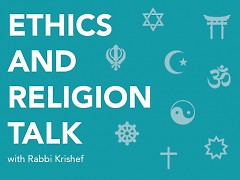Fred Stella, the Pracharak (Outreach Minister) for the West Michigan Hindu Temple, responds:
“To begin with, God doesn’t ‘hate’ anything. In Chapter IX of the Bhagavad Gita it states, ‘I know not hate, I know not favor.’ While there are plenty of verses in our scriptures that tend to anthropomorphize God, giving ‘him/her’ human characteristics, it’s important to note that this is done solely to allow us to feel a relationship with Spirit in Its many guises.
“That said, we know that marriage is a noble and potentially spiritual institution. Much good comes to those who sacrifice momentary pleasure or convenience for the sake of maintaining relationship with one to whom vows of lifelong fidelity have been made. To the best of my understanding, sociological science indicates that marriage is better than divorce for most. That said, I would not hesitate one moment to advise someone to leave a union where a true, supportive, loving relationship has been proven impossible to achieve. Also, there is no prohibition in Hinduism that would disallow the possibility of remarriage.”
Father Kevin Niehoff, O.P., a Dominican priest who serves as Adjutant Judicial Vicar, Diocese of Grand Rapids, responds:
“In Roman Catholic Church, there is no such thing as divorce, so for me to speak of this issue as proposed in the question is disingenuous. The Roman Catholic Church teaches that marriages between two baptized Christians (not limited to Catholics) is a sacrament, and given by God. Humans may never break a bond God has created.
“The Church does have a process whereby a marriage may be determined to have never existed because of force, fear, mental illness, lack of discretion, or the withholding of an essential sacramental element of marriage… to name a few of the reasons a marriage may never have existed.
“The only way to receive what is called a declaration of nullity (often referred to by individuals as ‘annulment’), which judges the marriage to never have occurred, is for the Church to thoroughly examine the mindsets of the couple who attempted to enter the marriage. And, yes, it is possible to do this.”
Father Michael Nasser, who writes from an Eastern Christian perspective and is Pastor of St. Nicholas Orthodox Christian Church, responds:
“Orthodox Christianity mourns the loss of a marriage when it ends, but holds that because of our sinfulness, sometimes the ending of the marriage is the lesser of two evils. Divorce is regretfully acknowledged, and the divorcee is encouraged to see the process of one of healing, and to the extent appropriate, one of repentance.”
The Reverend Colleen Squires, minister at All Souls Community Church of West Michigan, a Unitarian Universalist Congregation, responds:
“Unitarian Universalists understand that humans evolve and change over time. We view marriage as a covenant or agreement between two consenting adults. For us a covenant holds a deeper meaning then a legal contract. Inherent in a covenant is the understanding that we are human and fallible and imperfect. We anticipate there will be struggles over the years and a covenant serves as a reminder of our original commitment and it asks us to stay in relationship to resolve the conflict.
“We strongly hope couples seriously consider the strength of their relationship before entering into marriage. We hope when challenges a rise the couple does its best to stay committed to working things out and that they continue to grow together. And we also realize there are times in a marriage when it is best to end the covenant and end the marriage. This is not easy and often difficult on both adults. It is not our place to pass judgement but to offer them support as they work out the details of separating their lives. We view divorce as a difficult path but at times it is a necessary rite of passage for some of us.”
My response:
Normally, those who get married do not intend for the marriage to end in divorce. But sometimes the marriage goes bad and cannot be saved. If that happens, my scriptural support for divorce comes from Deuteronomy 24. I’m not saying God loves divorce. But when the couple cannot sustain the marriage, God has given them a way to end it.
The passage from Deuteronomy illustrates that the Bible allows for divorce. I consider the ability to end bad marriages to be a positive. However, the non-egalitarian language of the Bible and its one-sided method of ending a marriage (that only the man may initiate and write the the divorce document) is a problem that contemporary Judaism is still struggling with.
This column answers questions of Ethics and Religion by submitting them to a multi-faith panel of spiritual leaders in the Grand Rapids area. We’d love to hear about the ordinary ethical questions that come up on the course of your day as well as any questions of religion that you’ve wondered about. Tell us how you resolved an ethical dilemma and see how members of the Ethics and Religion Talk panel would have handled the same situation. Please send your questions to [email protected].
The Rapidian, a program of the 501(c)3 nonprofit Community Media Center, relies on the community’s support to help cover the cost of training reporters and publishing content.
We need your help.
If each of our readers and content creators who values this community platform help support its creation and maintenance, The Rapidian can continue to educate and facilitate a conversation around issues for years to come.
Please support The Rapidian and make a contribution today.
